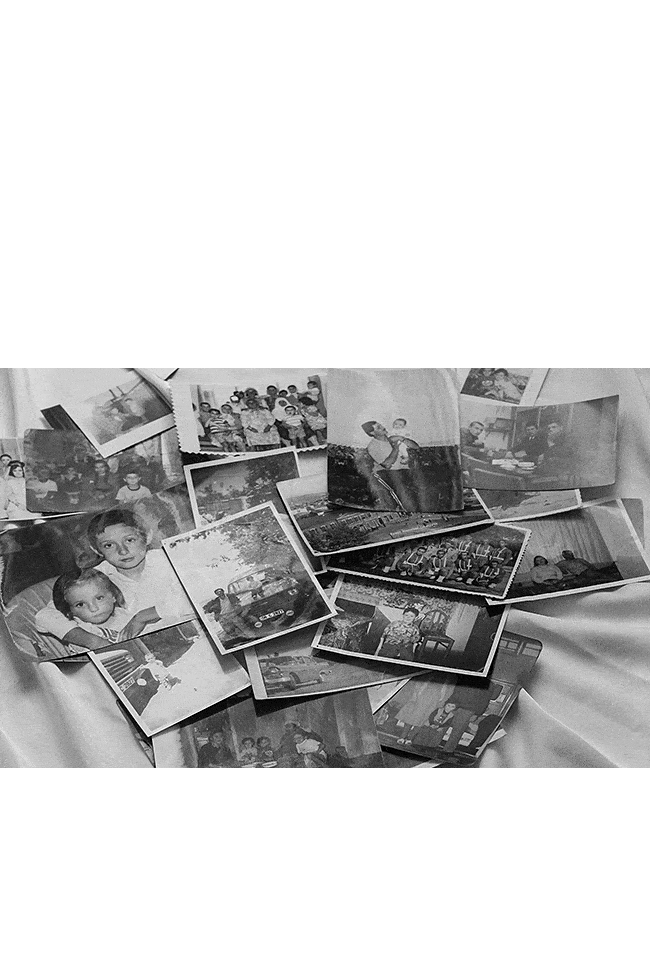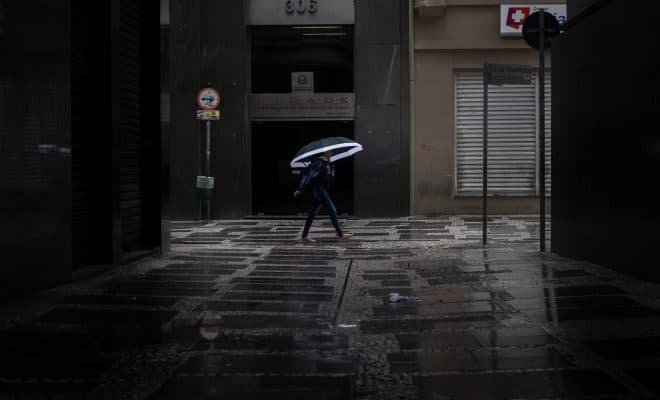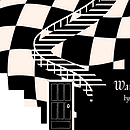In Remembrance

Years had collected into decades before Zach and Gina returned to their parents’ unfinished basement. The constant smell of mildew had kept them away during countless visits home. Once a refuge for friends, it now served as a time capsule. A chocolate-colored shag rug segmented the area as a rec room. Two ancient, faded plaid sofas faced a large boxy television nestled inside an entertainment center that had long ago seen its prime. An ominous wall of boxes stood on the other side of the basement. Each held remnants of their past. The task at hand was to decide the fate of their childhood souvenirs so their parents could move into a retirement village.
The two siblings worked under bare bulbs and filtered sunlight on the warm autumn day. They sifted through their belongings, emitting swirls of dust as they unearthed toys, trophies, and outdated video games. Gina, the self-proclaimed minimalist, had a large donation and throwaway pile and a paltry “to keep” pile. Zach thought that stuffed animals, children’s books, and even yearbooks took on an air of doom once designated as unwanted.
“Nothing has changed since we left for college, and even that seemed like ages ago,” Gina said as she carried an office box brimming with glossy photos and dropped it into her trash pile. Several snapshots burst free from the top and landed by Zach’s feet as he scrutinized the contents of one of his boxes.
“Did you even look through these?” He lifted his running shoe from underneath an image and glared at her as she walked to the storage closet.
“It says ‘extra photos.’” Gina turned and pointed with a black-lacquered nail. “Remember when Kmart offered duplicate photos? We went a little overboard.”
“Of course, I remember,” Zach grumbled. “Bring it here. I’ll look through them.”
“Hoarder.” Gina pushed the box over to him with a black high-top sneaker.
“Sentimental,” he said.
Zach sat on one of the worn sofas and set aside the framed portraits he had re-wrapped in newspaper. He retrieved a small stack of photos from the box. Many stuck together and were faded or blurry. They documented inconsequential happenings: dogs of their past dressed in baby clothing, Christmas tree displays, and Fourth of July parades. He drove his arm deeper into the box and pulled out a thick stack. The pile contained several years of birthday parties. A portrait of a cake documented the year that either Gina or Zach celebrated in front of the camera.
“Jackpot. Look at these.” He held the photos out to his sister. “Every year in full glory.”
“Look at my hair.” Gina studied herself with permed hair and sprayed bangs that defied gravity. Eyes outlined in thick black. “I always wanted to be goth.” She sifted through the photos. “Seems like the usual suspects: Jaime, Lizardbeth, Mikey…but who’s this?” She held the image of a group of kids around nine to ten years old, circling Zach at the head of the table as the birthday boy. A much younger boy with a classic bowl cut stood by him. He had the same light brown hair and eyes as Zach and Gina.
“Is he one of our cousins from the coast?” He plucked the snapshot from her and held the glossy image by a corner.
“I don’t remember them visiting us. Usually, it was the other way around, and we took this at our house,” Gina said, hands on her hips. Zach again drove his arm into the box and pulled out another pile full of birthdays, Christmas gift openings, and summer camping. He checked the back of the photos, several had years noted on them spanning a decade. “This kid is in almost every photo, and he doesn’t age. We didn’t have friends or even extended family over for Christmas or vacations.”
Gina picked up a VHS tape from the box with “1990” scrawled on the spine. She went to the television stand and plugged in a videotape recorder. “Thank goodness mom and dad never throw away anything or else we’d never get to the bottom of this.” When the machine awoke, she popped the tape into its mouth. A garbled image of school kids running came into view.
“Field day,” Zach said. He sat forward with his elbows on the knees of his jeans. They watched as a crowd of elementary school-aged kids sprinted toward a line of orange cones. Gina and Zach were among the runners. The same boy, at the same age, stood on the sidelines. “I remember that day. I tried to outrun ‘Burn Rubber Rob’ but couldn’t reach him.” Zach paused at the memory. “I just wanted to win and stand out for a moment.”
“The dreams of an elementary school kid,” Gina said.
“Who is he? He looks too young to be at school, and he’s all alone,” he said.
“He’s making that same face as you do,” Gina scrunched her eyebrows together as if she were squinting at the sun.
“That’s my face? Anyone can make that face as evidenced by you.”
The more Zach and Gina looked at the photographs and videos in the box, the more they saw the young boy in the periphery. He never smiled. He peered over shoulders, watched from the back wall of a room, or ran toward the scene of the picture. In one image, he was a blur, caught rushing to be a part of the moment.
He wore clothes familiar to them. A striped navy-blue turtleneck and brown corduroy pants. Jeans with big rectangular dark-blue denim patches on the knees and a stretched-out thermal shirt.
“This isn’t me. We’re in the same scenes together,” he said.
“Could it be a trick of the camera where images are layered, or the video taped over?” Gina paused the tape and peered at the display. Her nose touched where the little boy stood frozen, watching them in the video and through the screen.
“He looks curious as if wanting to be included like any little brother,” Zach said.
They decided to jog their mother’s mind about the boy who was present in so many images, but not in their memories. Zach noted the boy stopped appearing after high school graduation memorabilia.
Upstairs in the kitchen in the bright light of the afternoon sun, their mother shook her head.
“Familiar yet not, right?” Gina said, looking at the photos over her mother’s shoulder.
“I can’t imagine who he is,” their mother said.
“He’s in every photo and home video that we are in for the duration of our childhoods. We remember most people, but why not him?” Zach leaned against the kitchen counter, arms folded, and frowned.
Their mother opened her mouth as if to say something, but then closed it and shook her head again.
“There’s nothing you can think of?” Gina sat beside her mother at the table. The glossy postcard-size pieces of paper curled upward.
“This was so long ago, but there was a moment when I was pregnant with Zach that the doctor thought we might have twins. But Zach was just a big baby. I hadn’t thought about that in years. Turns out, things like that happen more than we realize.” She planted her hands on the table. “That’s enough of that. Have you made any progress downstairs?” She looked up at them for answers.
“Don’t you want to know who that is?” Zach gestured as if the question was so obvious. It didn’t need verbalization.
Gina lowered one of her brother’s arms. “We understand, mom. We’ll get back to it.”
Their mother cocked her head as if considering something. “Zach had an imaginary friend when he was very young. Ry-ry?” She nudged Zach as she stood up, brushed invisible dust from her arms and lap, and left the room.
“Maybe he wasn’t imagined,” he said to his mother’s back.
“She doesn’t want to talk about it. Sometimes, it hurts to remember,” Gina said.
“Is that why it’s so easy for you to toss things?” Zach asked.
She nodded. “For whatever reason, I always felt out of place. When I got older, I only wanted to be on my own and explore.”
“I didn’t know that,” he paused. “You probably believe in ghosts or whatever, more than I do. But maybe I used to talk to this kid, this little brother who never grew up. Then I stopped, and he kept trying to get my attention until he couldn’t anymore.”
“Because you wanted to get away too,” Gina said.
They couldn’t get the boy out of their minds. Back in the basement, Gina continued searching for more evidence. She sorted the photos based on whether the boy was in them. The columns of photos on the floor lay in front of her like an image-based version of Solitaire. The ones with the mysterious boy grew longer than the others.
“What’s your plan?” Zach asked.
“I’m going to put the pictures with him and us in their own album. He’s a part of us. The least we can do for him is remember.”
“I need a break. I’ll go buy an album,” he said.
The golden hour presided as Zach drove to the strip mall where the IGA and other small mom-and-pop shops once stood: a cobbler, a seamstress, and a nutritional store. Now, a super-sized Rite Aid reigned in the L-shaped shopping center. He bought two scrapbooks. Ry-ry had been close to him in most of the pictures. Zach tried to recall his conversations with him, but nothing stood out.
When he returned home, he sat in the driveway. He held the books to his chest as if they were sacred.
“Ry-by? Are you there?” Zach smiled at himself and ran a hand over his mouth. “I hope you come back with me.” They had years to catch up on. He waited, but the surrounding silence didn’t change. He remained alone.







